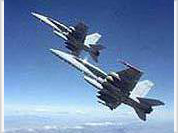Islamic Korea
Muslim society in Korea is developing and growing
As it is well known, Korea is a country with only one nationality. However, there are a lot of religions there. Protestant Christianity has held the leading position in the religious life of Korea for 50 years now. Yet, there are many Buddhists and Catholics in Korea. Orthodox Christianity and other religions are very hard to find. There are even Muslim Koreans as well.
The roots of the Korean Islam are very ancient. The period of the V-X centuries A.D. was an era of the Arabian navigation in the Indian Ocean. That was the time when Arab sailors set up the first commercial routes around Southeastern Asia and established sea trade with the Chinese empire. Numerous Chinese Muslims, who live in the South of China, are a reminder of that ancient period now.
Arab vendors and sailors reached Korea as well, which was then governed by the Silla dynasty. The Arabs liked the country and its people, so they simply decided to settle there. They built their own trade settlements in Korea, and these settlements were later mentioned in Arab sailing directions of the 19th century. As it was written in these directions that Arabs called Korea Silla, the mountainous country, which was rich in gold. Many Muslims who came to Korea decided to stay there for good. They were flabbergasted with the beauty of the country. Beginning from the 19th century, Korean chronicles mention the mass resettlement of Arabs on the Korean peninsula.
It goes without saying that the vast majority of Arab vendors were Muslims. They brought their religion to Korea along with their goods. However, the change of the political situation in the XV century eventually resulted in the weakening of contacts between Korea and the countries of the Middle East. Some time later, these contacts vanished completely. Muslim immigrants were gradually assimilated by the Koreans, and then they dissolved in the local population. However, there can be some people found in Korea who remember that their villages were founded by Arab vendors. They know that they have Muslim ancestors.
The story of Korean Islam started again in the 1950s. It is an open secret that other countries’ troops took part in the Korean war on the side of the American and South Korean coalition. Those other countries tried to prove their anti-communism and devotion to the values of the so-called “free world.” Turkey was one of those countries. It sent around 15 thousand soldiers to the Korean peninsula, and they proved to be rather good soldiers. It goes without saying that the Turkish soldiers built field mosques and told stories about Islam to the Koreans, doing their best to overcome the language problem). They even built a school for Korean children and several mobile kitchens for the hungry. Turkish military imams started dealing with missionary activities. Muslim-converted Koreans started participating in Friday prayers in 1953.
The first mosque was opened in Korea in 1956, although it was not permanent. Divine services continued in those temporal mosques until 1976, when Saudi Muslims came to help the Korean Muslims. Saudi Arabia funded the building of the mosque that now rises above the center of Seoul. The mosque is still impressive today, so you can imagine how it looked back in the days when Seoul was basically a gutter city.
It goes without saying that the Islamic temple in Seoul assisted in the development of the Korean Islam. When the mosque was opened, there were only 3700 Muslims in the entire country, whereas their number increased to 15 thousand by 1979. Needless to mention, such progress was achieved not only because of the mosque.
Korean companies were building objects in the countries of the Middle East during the 1970s, sending tens of thousands of workers there. Many of them returned home as Muslims. Sometimes, the decision was spontaneous, and, sometimes, it was a result of missionary activity, which was conducted by religious organizations of the Middle East.
Nowadays, there are some 40 thousand Korean Muslims living in Korea. There are five mobile and two permanent mosques there. Koreans make up the vast majority of parishioners.
On the whole, Islam in Korea is not that relevant, despite the efforts of Muslim preachers. It is considered to be an exotic phenomenon, although the number of Korean Muslims is much larger than the number of Orthodox Koreans. Nevertheless, Muslim society in growing and developing in Korea.
Andrey Lankov
Based on the Russian newspaper Seoul Herald
Translated by Dmitry Sudakov
Subscribe to Pravda.Ru Telegram channel, Facebook, RSS!



